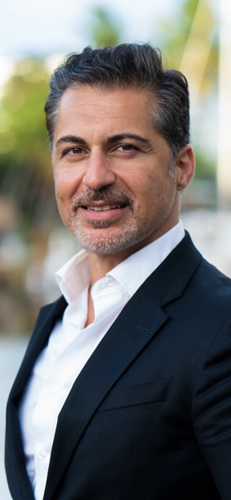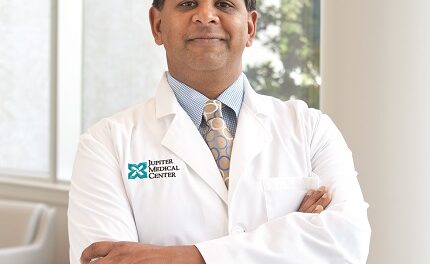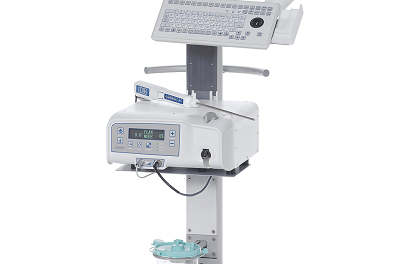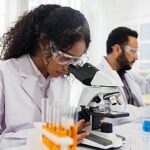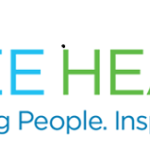By Vanessa Orr
When Kayvan Amini, D.O., FACC, was named the Physician of the Year by the Florida Osteopathic Association this past March, he was incredibly grateful—and surprised.
“Honestly, I was caught off guard when I got the call,” he said. “It was really quite shocking. But I recognize that the award is not about me—instead, it’s about all of those who have helped me on my journey. Those I learned from, admired, and partnered with along the way. I got here on the shoulders of others, and I stand among my peers who I believe should all be named physicians of the year.”
Dr. Amini has always believed in giving back to the medical community and especially enjoys mentoring and training the younger generation.
“I believe that we are only here for a very short time to make an impact on the scope of humanity and that the ultimate happiness is outside ourselves,” he said. “We are here to pass on our stewardship of love, knowledge and life—there is no end point goal. We protect it, nourish it and pass on.”
A clinical assistant professor at Nova Southeastern University College of Osteopathic Medicine, where he earned his medical degree, and president of South Florida Cardiology Consultants, Dr. Amini is board-certified in cardiovascular disease. He completed his residency at Mt. Sinai School of Medicine, University of Southern California, followed by a fellowship at Mt. Sinai Medical Center.
Dr. Amini came to America from Iran in 1983, when his family was forced to flee his home country. That chilling journey and the warm welcome that they received upon arriving in the U.S., along with the prestigious public roles of his parents, influenced his decision to embody public service, which he decided to do through a medical career.
“Immigrating from Iran to the U.S. was very challenging and we had to overcome a lot,” he said. “That experience, and my family, taught me the ideals of compassion, persistence, resilience and empathy, which is what a career in medicine offered. We are in the business of compassion; every day, we see people suffering and we do our best to alleviate their pain and suffering or heal them.”
Dr. Amini noted this resilience firsthand during COVID when physicians were able to remain adaptable in the face of extreme challenges. “We had to go through so much just to do what we do,” he said. “It was a truly transformative process for healthcare delivery and mentality, watching people showing bravery and heroic efforts no matter what the constraints.
“It’s just special, being able to go to work every day and make a difference in one person’s life,” he added. “No matter how much we move toward ‘population care,’ we must not forget that it is all about the individual. It’s still someone’s mother, grandmother, parent or child and you can never forget that.”
Dr. Amini gives back to his patients and his chosen career by serving with numerous associations and boards, including the Florida Drug Utilization Review Board and Health Information Exchange Coordinating Committee, Broward County Osteopathic Medical Association, Florida Osteopathic Medical Association, and Broward County Medical Association, among others.
“There are two ways to handle situations in life,” he said. “Become engaged and participate, or wait and watch. I’d rather be there to advocate for my community, peers and my patients.”
He encourages all of the students that he mentors to become engaged and participate in state and local organizations in order to create the future that they want to see. “Their voices and thoughts matter,” he said. “Soon, they’re going to be running the show and taking care of us. That’s one of the reasons that I do so many events that bring medical students and faculty together to talk about the basic principles of humanity; I want them to understand the value of participating.”
Despite the challenges faced by healthcare practitioners over the past few years, Dr. Amini said that he is confident that the future of healthcare is bright.
“With the stress of COVID, we became more efficient and figured out how to reach people through technology that we couldn’t otherwise reach,” he explained. “Although I believe that technology, AI, and further advances will create more efficiency, accountability of self-care, access and cost control, my main concern is that these transitions in medicine must not forget the individual patient relationship.
“Taking care of people is a privilege and that can’t be taken for granted,” he added.

